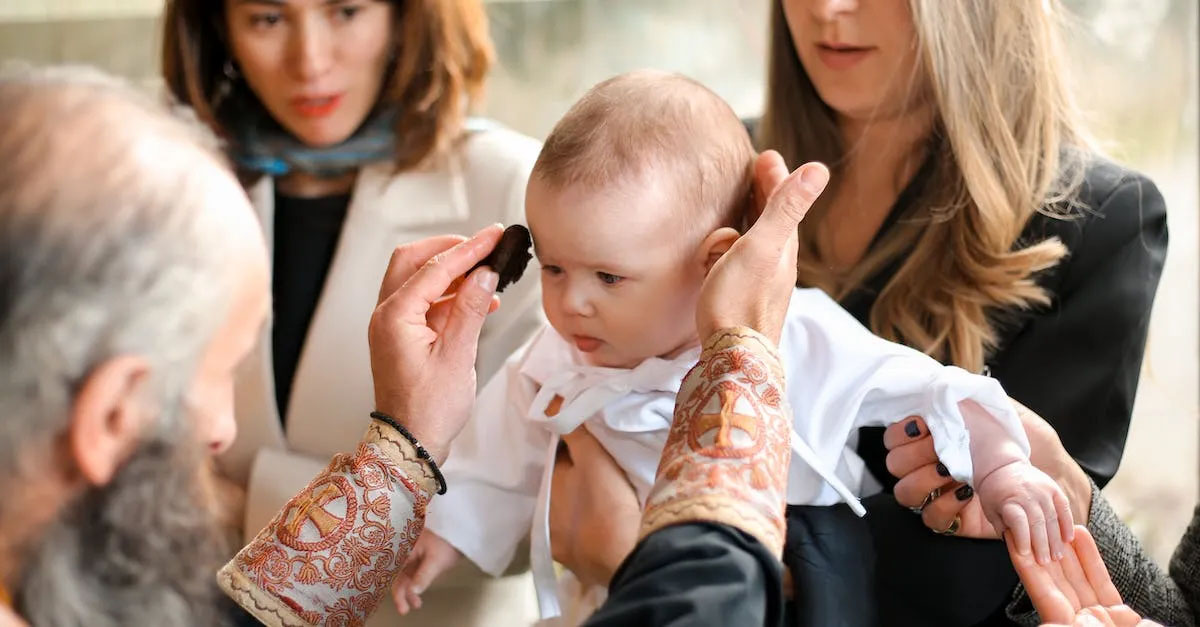Spring is here in the Chicagoland area, and I don’t know about you, but the invites have begun for the christenings and confirmations of my friends and families’ kids. Depending on the religious beliefs of your loved ones, it’s common for parents to name godparents to mentor and guide their children throughout life. But the scary truth is that your children could still end up in child protective services, even if they have a godparent.
As a parent, naturally it’s your top priority to protect the well-being and future of your children. You plan for their education, health, and happiness, and depending on your religious beliefs, this planning may include the tradition of choosing godparents to guide and mentor your children if something happens to you.
While selecting godparents is a meaningful tradition in many cultures, it’s important to understand that naming a godparent is not the same thing as naming a legal guardian for your children.
To put it bluntly, even if you have named godparents, if something happens to you, your children could end up in the care of strangers, child protective services or in the long-term care of someone you would never want to raise your children. The reason is that in the eyes of the law, you have not taken the necessary legal steps to formally appoint someone as the guardian of your child.
In this blog, we’ll explain the roles of a godparent and legal guardian and how to ensure your kids are always cared for by the people you choose – no matter what the future may hold for your family.
Godparents
A godparent is traditionally someone you name to watch over your child and help them to live by the morals and values of your beliefs. Godparents are meant to be mentors and role models, guiding your child in matters of faith, and morality. The role of a godparent is deeply rooted in religious and cultural traditions, and they often participate in religious ceremonies such as baptisms, christenings, or confirmation.
If this is a religious practice your family takes part in, godparents traditionally play a supportive role in your child’s life by offering emotional support, advice, and friendship. They can be someone your child can turn to for guidance and a listening ear, but in the eyes of the law, their responsibilities are largely informal and have no legal effect.
Legal Guardians
In contrast, naming a legal guardian for your child is a formal, legal process rooted in the law in your state. A legal guardian is someone who has the legal authority to make decisions on behalf of your child, especially if you, as the parent, are unable to do so. This could occur due to your passing, incapacity, or any situation in which you cannot care for your children and make important legal, financial, healthcare or education decisions for your child.
The responsibilities of a legal guardian encompass every area of your child’s life that you would normally manage as a parent. This includes everything from raising your child on a day-to-day basis, to deciding where they go to school, attending parent-teacher meetings and which extracurricular activities they participate in. Legal guardianship also includes the decisions about where your child lives and what medical treatment they should or should not receive.
A legal guardian may also help manage your child’s financial assets and resources, ensuring their financial well-being. In some cases, if you’ve planned ahead, you may choose to have a different person act as a financial Trustee of the assets you leave for your child. Your chosen “financial Trustee” or “the guardian of your children’s estate,” will work alongside the “legal guardian of your children’s person,” or the person you’ve chosen to raise your kids on a day-to-day basis, to ensure your children are financially supported. In some cases, your guardian and Trustee may be the same person. This is a decision we can help you make during a Family Wealth & Legacy Strategy Session, based on the specifics of your family dynamics. Yet, it is always something we advise our clients to consider as a system of checks and balance. In our experience, most parents enjoy the comfort of knowing that if anything should ever happen to them, their children will be raised by the people they want, while their future financial well-being and inheritance are managed by another trusted friend or family member to ensure those funds are prudently preserved for their children’s future and there’s no opportunity to for any inappropriate spending or mismanagement of their life’s savings.
Why Naming Godparents Isn’t Enough
Just to be clear, if you’ve chosen to name godparents for your children, while they may be deeply caring and involved in your child’s life, they have no legal authority to make decisions for your child unless they are officially appointed as a legal guardian by the court. That means that until that happens, (if it happens) your child’s godparents are not legally able to make any decisions for your children, including their basic care needs, education, and medical care.
If you become incapacitated or pass away, and have not legally nominated a guardian (and, ideally, more than one, which is one of the 6 common mistakes families and even lawyers make when naming guardians), there could be a long and expensive custody battle among your family members or friends. Grandparents, aunts, and uncles may assume you would want your children to live under their care rather than the people you named as godparents. This is even more likely if the people you’ve named as godparents are not related to you by blood or marriage.
Without a legal guardian appointment in writing and signed with the formalities of a Will, godparents may find themselves in an expensive legal fight over the custody of your kids, and they may not even be named as the legal guardians of your children at all. In fact, the court could name someone you would never want to raise your kids as their legal guardian, even though you’ve named godparents for your kids.
Life-long Legal Protection for Kids
While godparents may hold a significant place in your child’s life as mentors and role models, they don’t possess the legal authority to make critical decisions for your child or provide for your child’s physical and financial well-being on their own. In fact, if their not family, they technically do not even have the legal right to care for your kids temporarily on a short-term basis if something should ever happen to you.
This is why it’s so important to consider combining the roles of godparents and legal guardians into one. If you’ve already chosen people you trust to serve as lifelong role models and spiritual guardians for your children, why not give those people the legal authority to truly perform those duties if something happens to you?
If you aren’t sure who the best guardian or godparent is for your children, we can help. We’ll walk you through a personalized and caring process to assist in choosing guardians who will help your children to become the adults that you’ve always envisioned. We enjoy guiding our clients through a process that allows them to focus on who they want their children to become, as opposed to a list of names that often cause disagreement and arguments amongst couples. Instead, we want them to focus on their children’s future 20-30 years down the road, allowing them to more thoughtfully make a decision to choose individuals who genuinely care for their child’s well-being, share their values and will help guide their children to the future they desire. Not to mention, we’ll ensure they have the financial and legal tools needed to give your child the best life possible if you unfortunately cannot.
Getting started is the easy part. You can even nominate permanent legal guardians for your kids right now using my free website, and I encourage you to name permanent legal guardians right now.
But please don’t stop there because there’s so much more that should be done. The best way to keep your children safe and secure is to create a comprehensive Children’s Protection Plan™. Our process involves naming long-term and short-term guardians, along creating a legacy interview and writing certain letters. This will ensure that your children will be taken care of by the people you have chosen in any situation, out of the care of anyone you wouldn’t want, ensure your children can receive prompt medical care, and that the authorities know who to contact in an emergency so your children are never placed in protective custody – even for a minute.
To learn more and to get started today, click here schedule a complimentary call with my office.
P.S. – If you enjoyed reading this article and made it to the end, please leave a comment and let us know your thoughts and your biggest takeaway. If you think your family and friends could benefit, please share it on social media to spread the word.
This article is a service of Family Wealth & Legacy Legal Solutions (FWLLS). At FWLLS, we do not just draft documents; we ensure you make educated, informed and empowered decisions for yourself and the people you love. That’s why we offer a Family Wealth & Legacy Strategy Session™, during which you will get educated and begin to prepare to avoid life’s most common legal problems and get a plan in place to make the best possible choices for the people you love. You can begin by calling our office today to schedule a Family Wealth & Legacy Strategy Session and mention this article to find out how to get this $750 session at a significantly discounted rate, or even for free.


